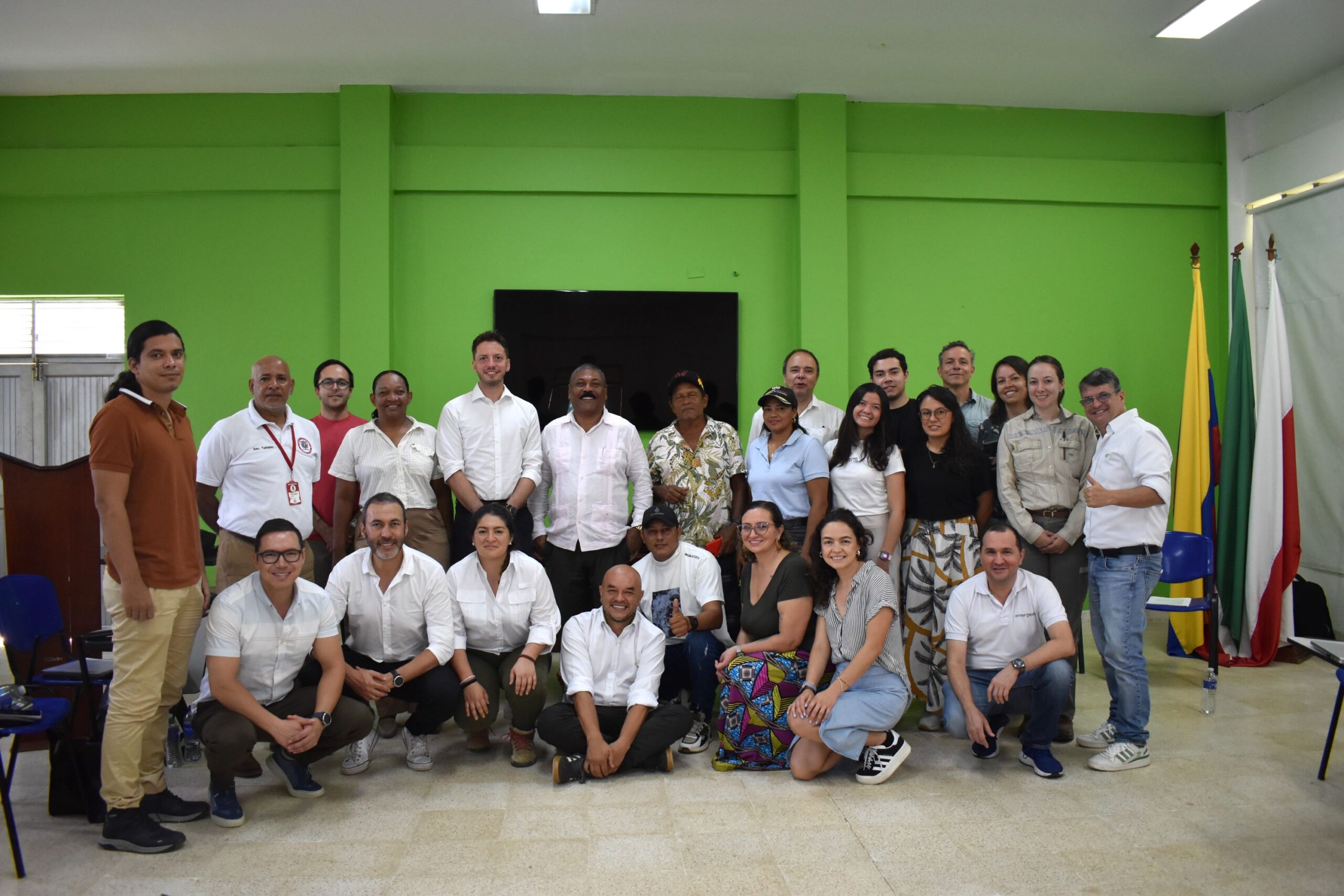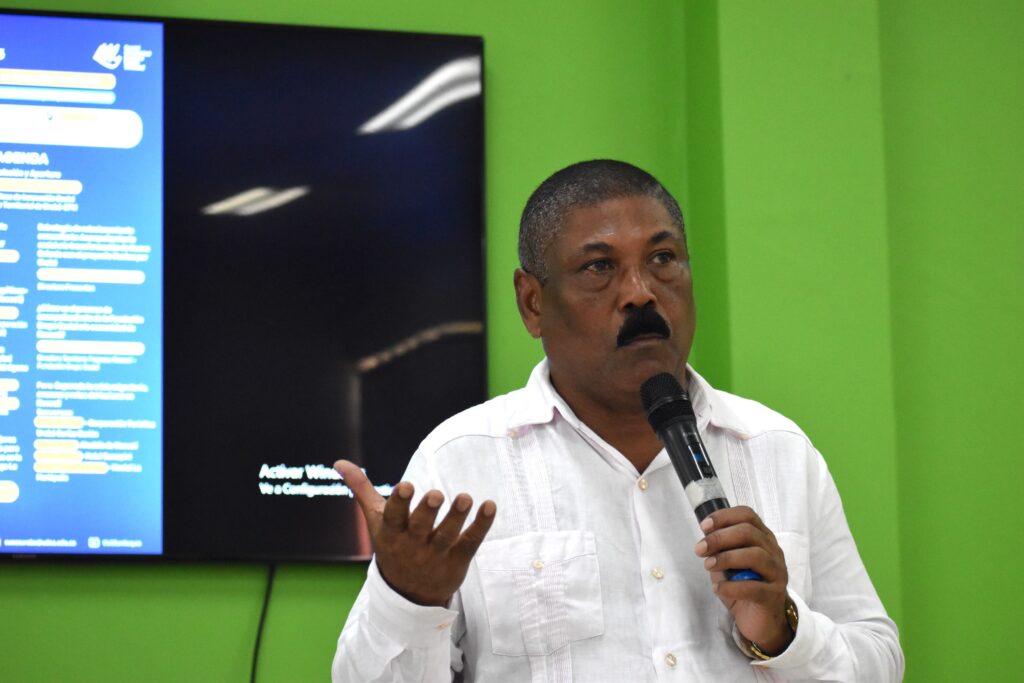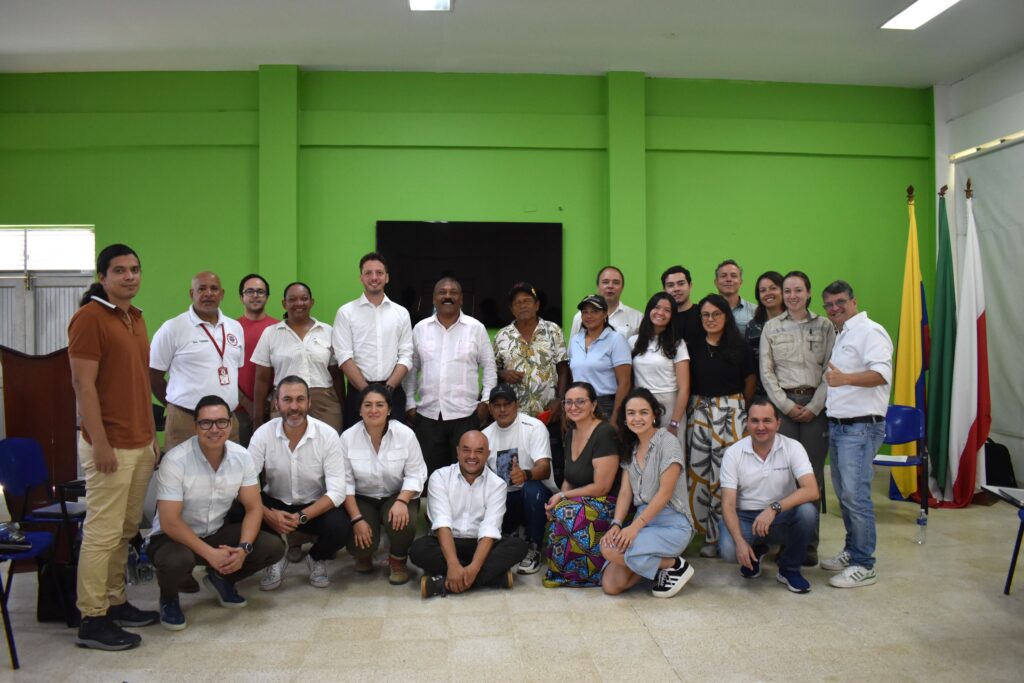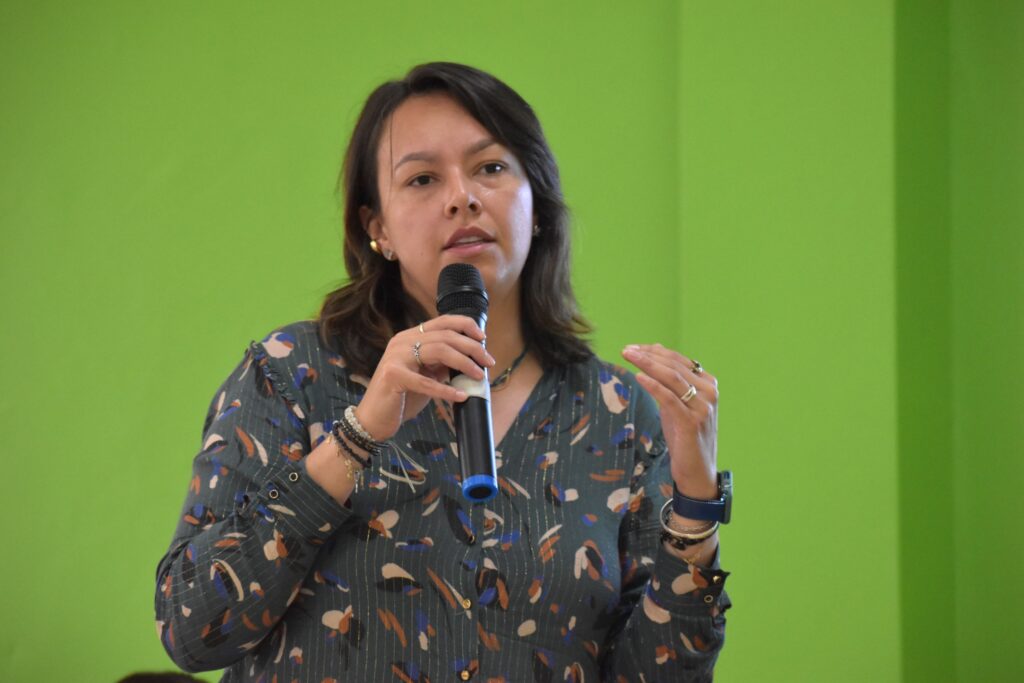On August 20, in a milestone for the energy transformation of the region, the German Development Cooperation (GIZ), through its IKI Interface project, has put Mulatos, Necoclí, on the innovation map. The initiative, which seeks to establish the first energy community in the territory, was presented at the University-Enterprise-State Committee (CUEE) of Urabá, with the objective of positioning it as a strategic project for the territory.
The meeting, which brought together Mayor Guillermo José Cardona Moreno and the most relevant actors of regional development, served as a platform to present the benefits and potential of a model that goes beyond the simple generation of energy and to learn about the projects that are being developed in the region and the progress in the implementation of the Development Plan “Necoclí Nuestra Identidad” (Necoclí Our Identity).
The IKI Interface project began by presenting its value chain analysis and its work proposal, which focuses on the active participation of the community in the management, production and consumption of its own energy, promoting local independence and resilience, in coordination with the Necoclí Mayor’s Office and EPM. This tripartite vision is innovative and, if successful, its replication would be sought in other territories of the Urabá region.
The pilot project in Mulatos is a commitment to a more sustainable and equitable future. By empowering the inhabitants to become managers of their own energy supply, new opportunities for economic development are opened up, vulnerability to market fluctuations is reduced, and the social fabric is strengthened. The community benefits directly from the energy generated, reducing costs and contributing to the fight against energy poverty.
GIZ provides fundamental technical and strategic support. The IKI Interface initiative acts as a bridge between technology and local needs, ensuring that the project design is robust, articulated among all stakeholders and adapted to the particularities of Mulatos. This support is crucial to ensure that the project is not only technically feasible, but also generates a positive social and environmental impact.
The University-Enterprise-State Committee (CUEE) of Urabá has recognized the importance of this proposal, which opens the door to future alliances and collaborations. The synergy between the public and private sectors, academia and the community is essential to make this project a reality and turn Mulatos into a benchmark for energy innovation in Colombia.
The Mulatos initiative represents a firm step towards a just and democratic energy transition. By placing the community at the center of this initiative, a more prosperous and sustainable future for Urabá is being cemented. The bet is clear: the energy of the future is the energy of the people, and Urabá has the potential to lead this transformation.



